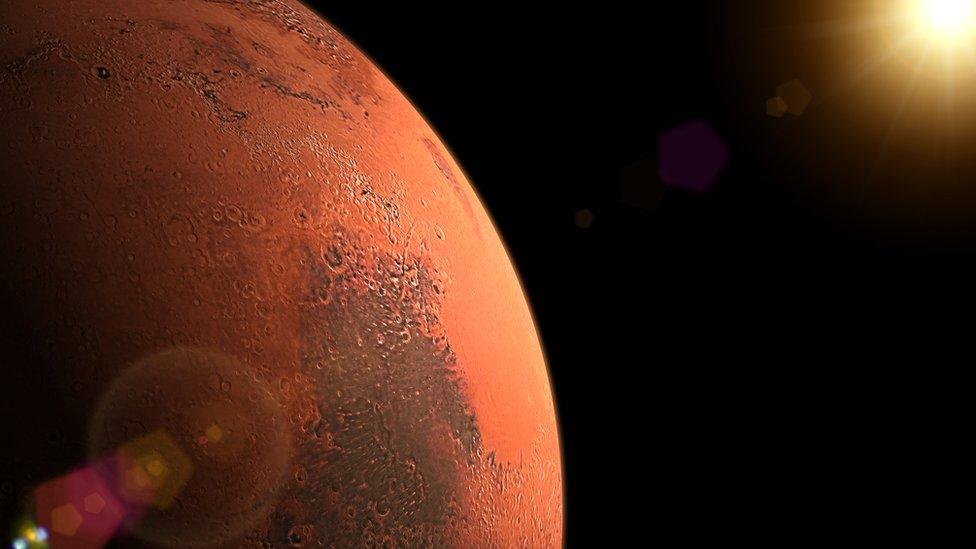Mars: Nasa's InSight lander detects first 'Marsquake'
- Published
- comments

Nasa's InSight probe has detected and measured what scientists believe to be the first 'Marsquake' ever recorded.
The spacecraft landed on Mars in November 2018 with a mission of studying Marsquakes - that is, earthquakes, but on Mars!
This is the first time a likely seismological tremor has been recorded on another planet.
A faint rumble was picked up by the probe's sensors on 6 April - the 128th Martian day, or Sol, of the mission.
Scientists are still examining the data to determine the what caused the tremor signal, but they say it appears to have started from inside the planet, as opposed to being caused by forces above the surface, such as wind.
They think this Marsquake could either be movement from a crack inside the planet, or shaking from a meteorite hit.
WATCH: What is the Nasa InSight probe doing on Mars?
InSight is what is called a stationary lander. This means it will sit still on the surface of the red planet to carry out its studies, unlike the Mars rover which roams across the surface.
The name of the shuttle InSight stands for Interior Exploration using Seismic Investigations, Geodesy and Heat Transport.
The team is also investigating three other signals picked up only by the low-frequency sensors - on 14 March (Sol 105), 10 April (Sol 132) and 11 April (Sol 133).
However, these were much smaller, and the InSight scientists do not have the confidence yet to say these as definitely real seismic events.
The sensors were developed in France and the UK
Although no comparison to a tremor on Earth has been given for the apparent Marsquake, scientists think it was very small.
In fact they say it was so faint that a quake of the same scale on Earth would be lost among the dozens of seismological crackles that occur here every day.
The rumble on Mars stood out because the surface of the red planet is extremely quiet in comparison with Earth.
"We've been collecting background noise up until now, but this first event officially kicks off a new field: Martian seismology," said InSight principal investigator Bruce Banerdt.
- Published27 November 2018
- Published8 June 2018
